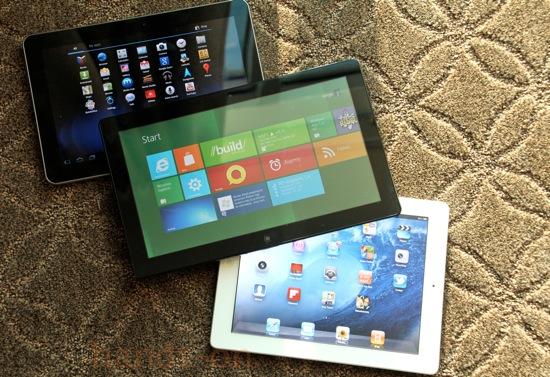
I find it difficult to get excited over Windows-related news these days.
Windows 8, for instance, looks pretty nice. It's a much-needed refresh of the aging operating system that is Windows, whose core user interface hasn't radically changed for the better part of two decades. Windows 8 will finally extend the Metro UI to the final branch of the Microsoft ecosystem and complete a full circle of platforms hidden behind colorful squares. But, at the end of the day, it's still Windows, and I'm not holding my breath for a significantly better user experience.
Likewise, I'm indifferent to Windows Phone and the pending Windows Phone 8 update, codenamed Apollo. Windows Phone, no doubt, is a viable smartphone platform and has garnered some die-hard fans and a respectable amount of development support in its 18 months on the market. It still, however, lacks traction and the necessary market share to pose any real threat to the other two major smartphone platforms, Android and iOS. And it is still missing a lot of the functionality that the more weathered platforms offer. That said, Apollo is believed to bring a bag full of new tricks and features to the platform.
Regardless, the software – both desktop and mobile – just doesn't tickle my fancy like other operating systems do. I have all but rid my life of Windows-based PCs. I replaced Windows 7 that came pre-installed on my laptop last year with the latest Ubuntu release client, and gave my desktop the same treatment. I also purchase my first MacBook and have never looked back. I have given Windows Phone more than a few trials, only to find the same thing each time: the software isn't quite ready for power users. So I've opted to stick to Android and iOS for the time being, with a dose of BlackBerry here and there.
With all of that said, there is one thing that can allow Microsoft to talk straight to my heart, regardless of my lack of enthusiasm for their software: tablets.
This coming Monday, Microsoft is set to announce something "major" in Los Angeles. What the announcement will entail is still a secret, but some are speculating that Microsoft is summoning the media to LA for something we never saw coming: a Microsoft-manufactured tablet.
That's right. Microsoft. A hardware company. Strange, isn't it?
But it also makes sense. All this time Microsoft and Apple have been duking it out, fighting for PC market share. The entire time, Apple has been both a software and hardware company. Microsoft has been a software company who has let a plethora of other companies serve its software on various levels of hardware. Now, Google has been pulled into the mix with Chromebooks and Android. And with Motorola under its belt, Google can do both hardware and software, too.
It's only a matter of time before Microsoft crosses that threshold, and Windows RT is the perfect opportunity. PCs aren't necessarily a dying breed; they're just evolving. Desktops and laptops are ever-less-important. Tablets and smartphones now handle a great deal of personal computing. And Microsoft is the only software provider of the major three who has yet to officially enter the modern ARM-based tablet space.
Windows RT offers something neither Android or iOS can offer: a full-fledged operating system experience in an ultra portable form factor. With a Windows RT slate, you can get full desktop functionality out of a touchscreen device that will fit in a purse. Of course, that added functionality will come at a cost. Windows RT slabs aren't going to be cheap.
This (functionality, not price) is exactly what I've been looking for. I've been testing nearly every tablet and various services, trying to find a steady workflow from keyboardless slabs. But the software just isn't capable of handling the workload. I need a full-fledged browser, better multitasking and more to be able to work entirely from a tablet. And a Windows RT slate will offer just that.
I'm not convinced Microsoft is ready to leap into the hardware business on a product that's failed them in the past (more than once to boot). But I would love to see a Microsoft-branded slab, nonetheless. And it may even grab my attention from the likes of the ASUS TAICHI, Transformer Book or the other various RT tablets.
Either way, my eyes will be peeled come Monday morning. I will be watching for the Microsoft announcement with debit card in hand. I love my MacBook Air. But I'm ready to leave it at home and work entirely from a touchscreen device. Let it be known, though, that I won't be leaving my iPad behind once I buy a Windows RT device. There's always space in my bag for two tablets.
What say you, folks? Are you interested in Windows RT? The respective hardware? Or, even with Windows RT, do you find tablets to be a waste of time?
Image via The Verge